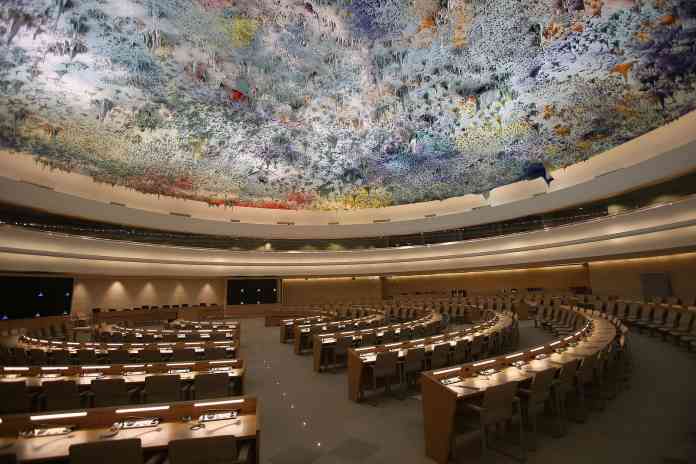UN discusses the protection of human rights while countering terrorism

Fionnuala Ní Aoláin, the Special Rapporteur on the protection and promotion of human rights and fundamental freedoms while countering terrorism, gave a statement on the International Day of Remembrance and Tribute to the Victims of Terrorism, urging governments to adopt a human rights-based approach to victims of terrorism by positively and consistently affirming the human rights of all victims.
Ms. Ní Aoláin started the role in August 2017 after being appointed by the United Nations Human Rights Council. She is concurrently Regents Professor and Robina Professor of Law, Public Policy and Society at the University of Minnesota Law School and Professor of Law at the Queens University, Belfast.
Special Rapporteurs are part of the Special Procedures of the Human Rights Council. Special Procedures are the Council’s independent fact-finding and monitoring mechanisms that address specific country situations and thematic issues all over the world. Experts who work in Special Procedures do so on a voluntary basis and do not receive a salary for their work. They are independent from any government or organisation.
During her statement, Ms. Ní Aoláin said: "The International Day of Remembrance and Tribute to the Victims of Terrorism must serve as a call to action and a reminder that commitments made to date must be implemented with immediate effect to ensure the realization of the rights of victims of terrorism."
She urged all states to adopt a human-rights-based approach to victims of terrorism by positively and consistently affirming the human rights of all victims. Supporting the findings and recommendations from civil society presented in the Civil Society Outcome document adopted during a Civil Society Workshop co-organised by her mandate and the Kingdom of Spain in May 2022, she called for member states to take steps to address these finding and recommendations. These include "address long-term accountability and the immediate needs of survivors in participatory, inclusive and equitable processes”; and that “any individual subject to human rights abuse in the context of terrorism - whether stemming from terrorist acts or counter-terrorism efforts - should be granted the requisite access to effective remedy, redress and holistic, psychosocial and trauma-informed care”.
Ms. Ní Aoláin continued to say that public words of comfort and acknowledgement are welcome, but they are not enough, saying that words do not bring the rights and entitlements that victims need. She called on states to provide more than expressions of solidarity and comfort and to see victims as autonomous rights-bearers with equal rights to justice, reparation and medical care.
She also mentioned the upcoming Global Congress on the Victims of Terrorism, scheduled to be held in New York from 8 to 9 September 2022, which she argued presents an "unparalleled opportunity" for states to make binding commitments to introduce human rights-based legislation in their legal systems which protect the rights of victims of terrorism without discrimination.
Finally, she talked of the plight of child victims of terrorism, saying: "The challenges faced by child victims of terrorism are unacceptable, whether they be the victims of direct attack, recruitment, trafficking, grooming, or simply born in geographies in which designated terrorist groups operate or in families alleged to be associated with designated groups.
"States must close the gaps between their commitments on the Children and Armed Conflict Agenda (CAAC) and their obligation to protect all children who have been victims of designated terrorist groups and other serious violations of international law.
"It is intolerable that children - who are the most vulnerable victims of terrorism, with no choices in their places of birth or parentage - are treated as ‘non-children’ and not recognised or treated as victims of terrorism and of grave violations of international humanitarian and human rights law."
Image: Wikimedia
digital issue




















